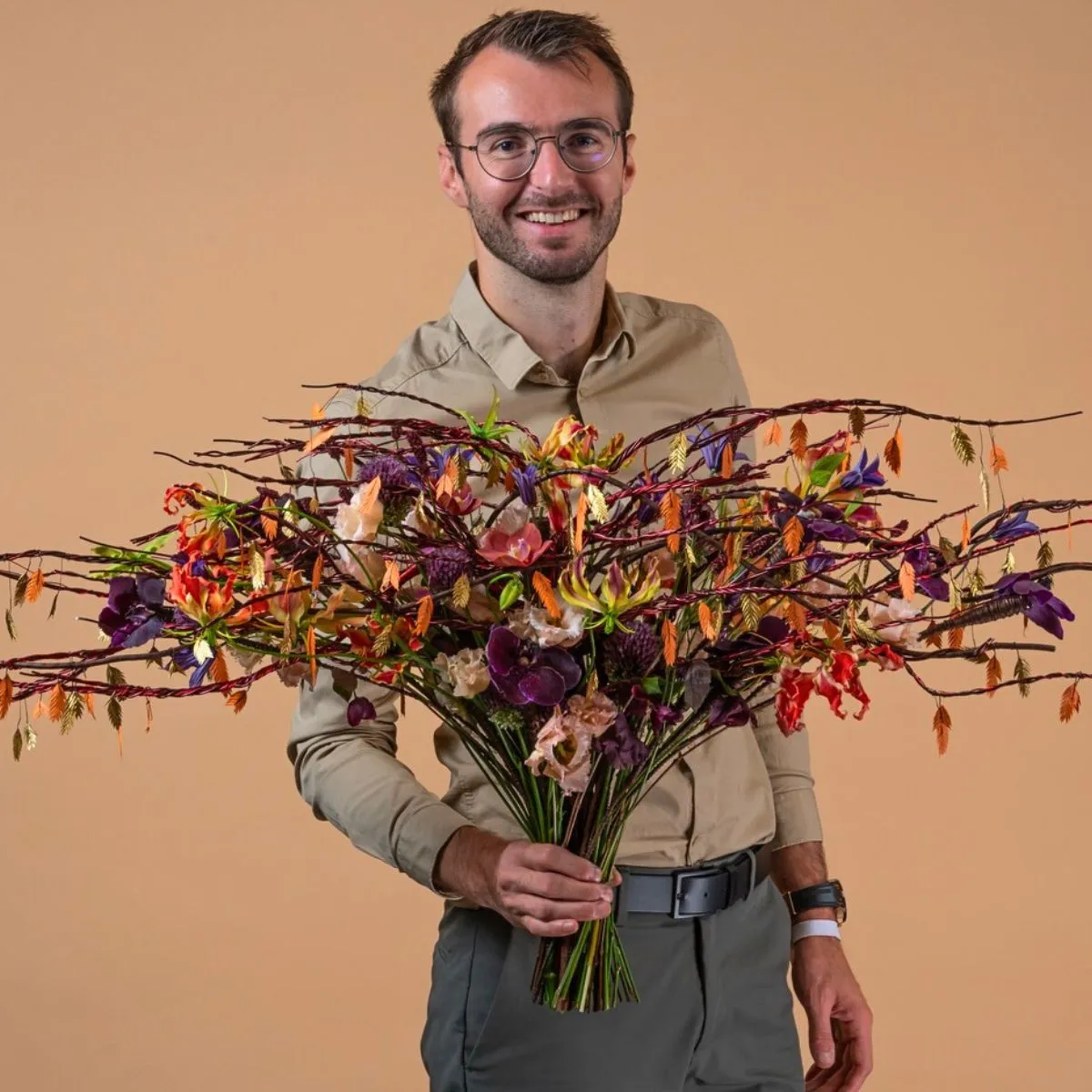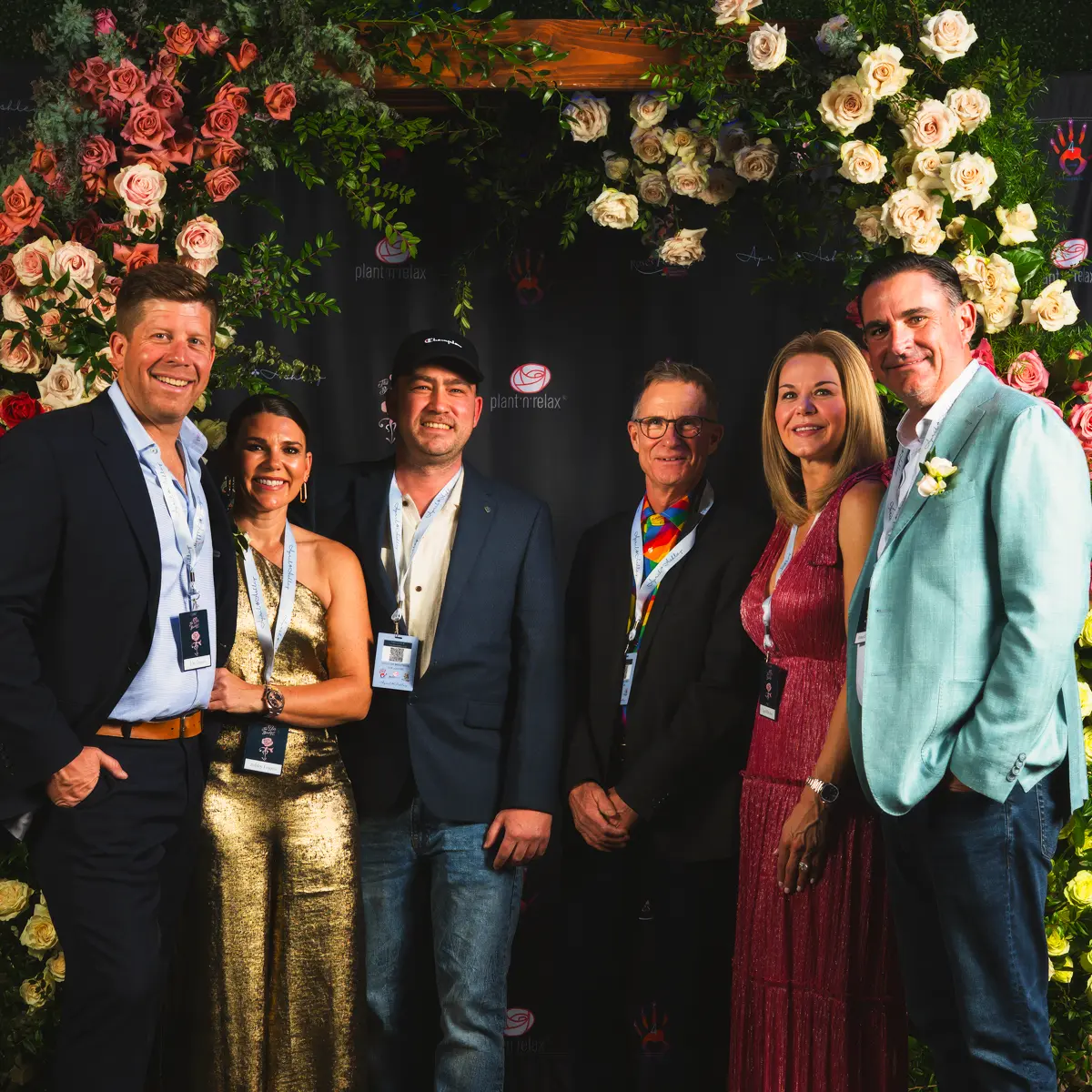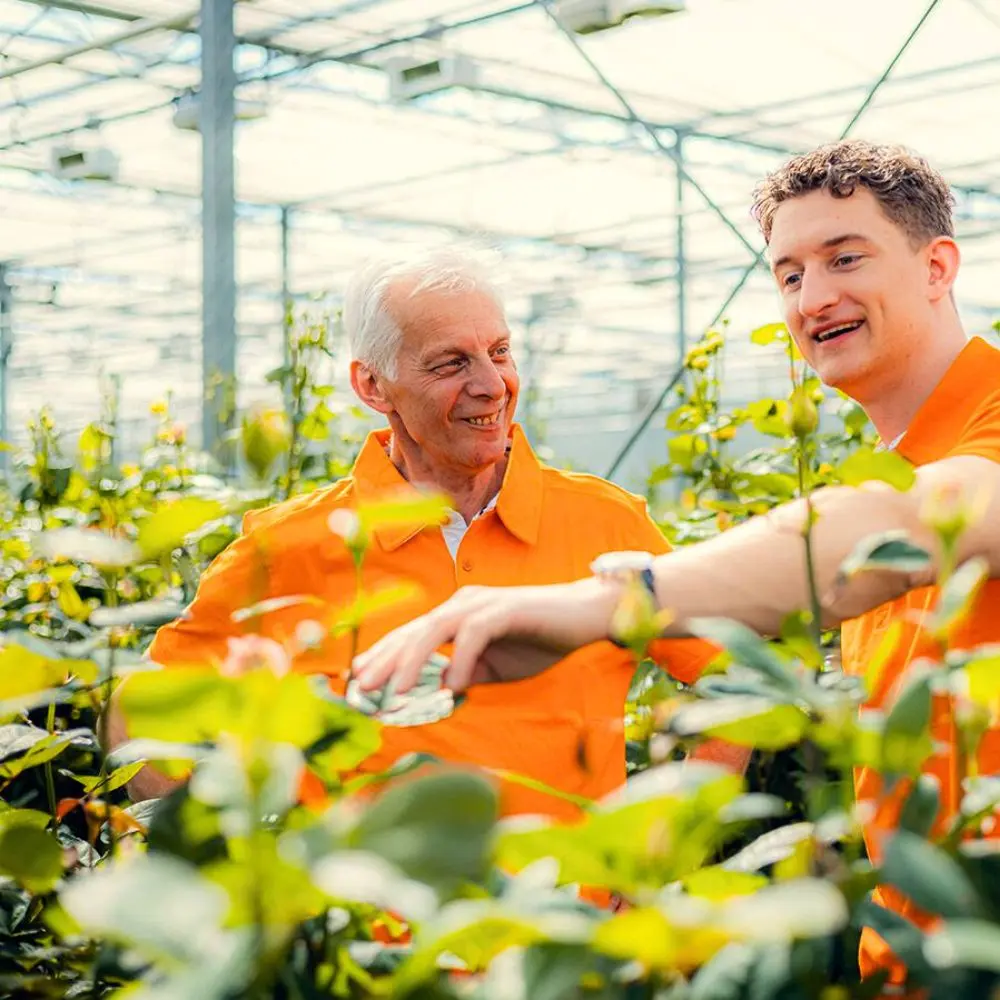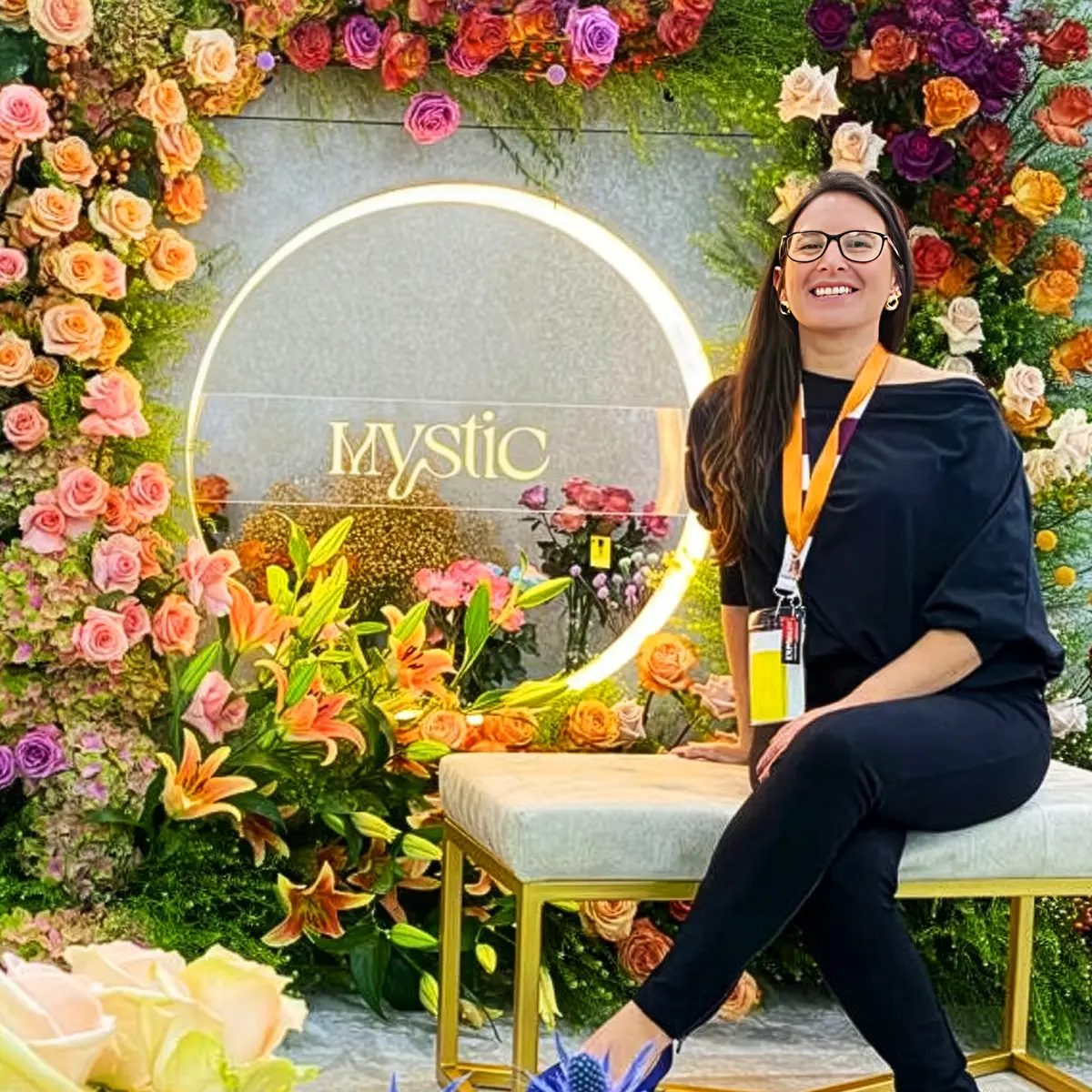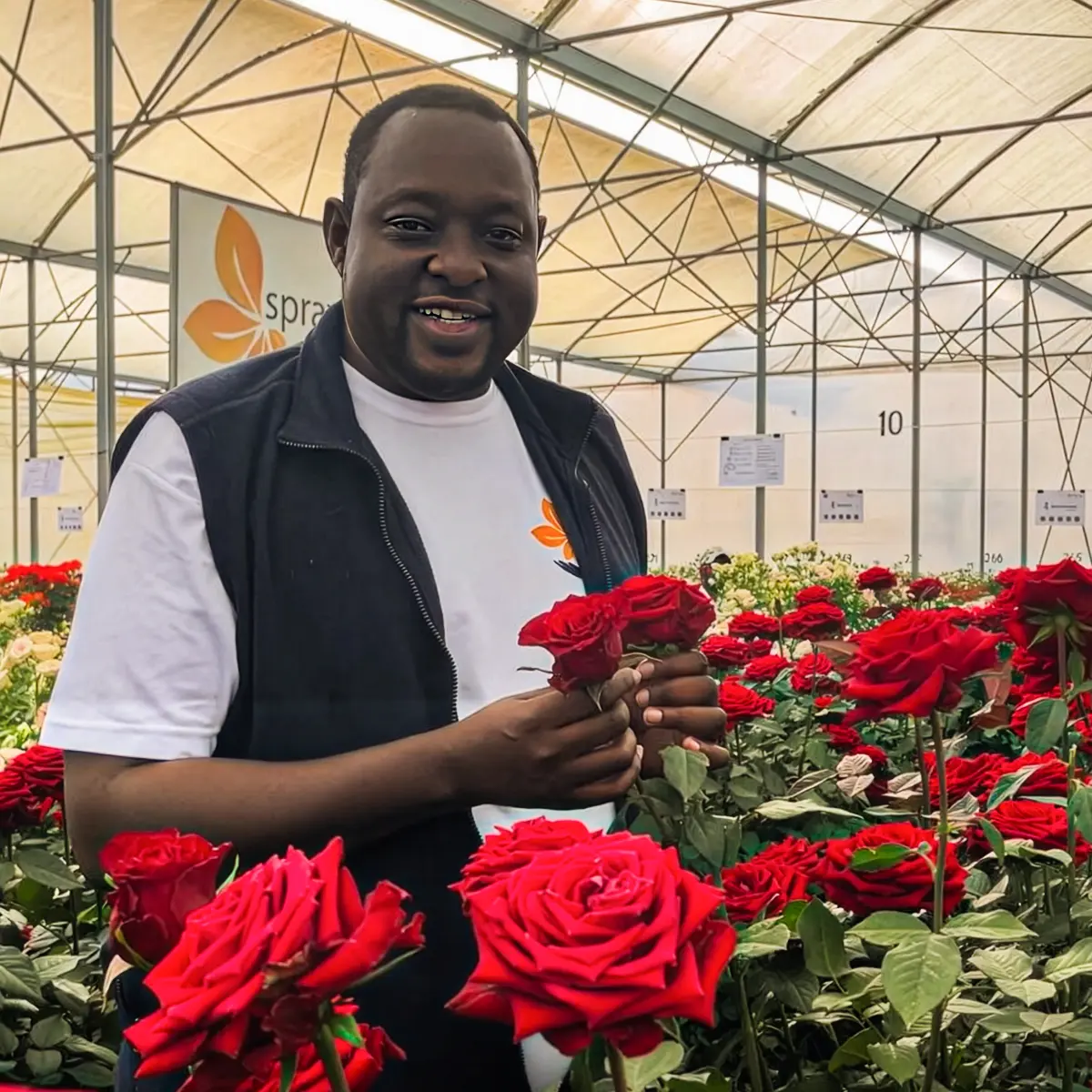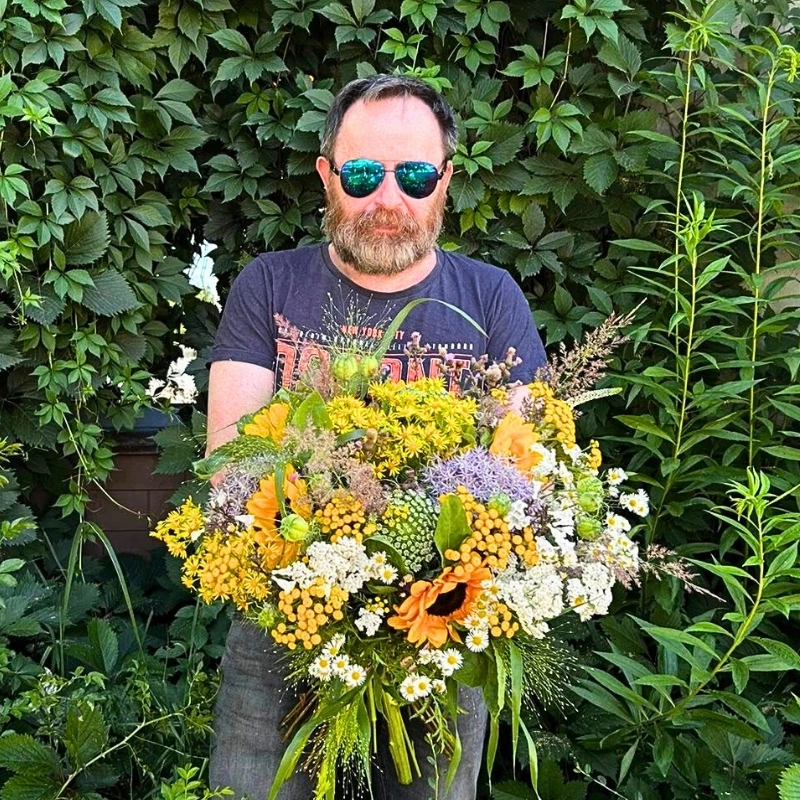Having an educational background and having been a teacher for half of his career, John Pouw's knowledge and love for flowers will 'wow' you at the very first encounter. He has been in the flower industry, specifically in the breeding line of business, for more than three decades.
Through his intriguing answers to the 10 questions. John takes us through his floral career journey and his mission with Viking Roses to breed, select, and license unique rose varieties suitable for the global market.
Read on!
Question 1
For those who don’t know you, who are you and what do you do?
"John Pouw, just retired from half of my career (teacher) to expand the other half (rose breeding and marketing), and on a mission that I started over thirty years ago.
Together with Rosa and Harley Eskelund of Roses Forever (Danish breeding of pot and garden roses) we set up Viking Roses for cut roses some fifteen years ago, in which the Danes do the breeding and first selection, and then I take care of international selection for the major production areas, licensing and marketing.
The challenge has been to develop cut roses from the genetic uniqueness of the combination of garden and pot roses in colors, head sizes, and healthiness. Occasionally, a variety came out, but we are now experiencing a breakthrough!"

Question 2
What is so special about your job?
"There is a combination of aspects that make rose breeding and the rose world very exciting. First, the struggle with nature, which, in the end, you never win, but there’s always the little steps that are rewarding. (And then nature comes up with new challenges like ralstonia or agrobacteria.) Then every spring the search for the holy rose grail has a new chapter when the seedlings come up. Maybe the beautiful, perfectly shaped, disease-resistant fragrant red
With dark shiny foliage and an excellent opening and vase life will be there. Next, the shared excitement in a new code, especially when this comes out in a specific testing area. At the same time, working in and with different cultures and learning more about them every day. Finally, walking into a greenhouse filled with your variety, remembering when you first picked it and in awe of the quality the production manager has added to it.
The missing step is the connection with the consumer, but that’s the mission mentioned earlier."

Question 3
Are there any specific challenges or obstacles you’ve faced at work, and how did you overcome them?
" As a breeder, we must serve and protect our customers who timely pay us the compensation for our efforts, the royalties. Therefore, we must fight piracies whenever and wherever these take place, and I have a reputation in being very strict in that. I avoid going to court, but will do and I have never lost. Even when, in the past, legislation was not yet in place in certain countries, I would discuss the issue first, then find out where the flowers went and, if needed, publish in the customer's country that a certain retailer was selling illegal flowers.
If there are problems, face them instead of hiding and hoping they will blow over. Find a solution before starting to argue about damages."

Question 4
What are the threats in the industry, and if so, do you have any solutions for them?
"Somebody shouts something and others follow. In our digital age this is even more so a threat. “Flowers are poison bombs!” “Only plastic flowers in hospital!” Not even a hundred professors can refute the nonsense of one influencer.
I also find the development of shipping flowers by boat concerning. Of course, it has positive sides, but, firstly, it will allow cheaper production countries to produce for the high season months ahead and disturb the sales of existing production areas. Second, we present the consumer with an emotional product associated with natural freshness that is already old. Surely, we will find varieties that will perform, but still …"
Question 5
How has technology like e-commerce platforms or digital marketing affected your industry, which strategies have you employed to stay competitive?
" As breeders, we have looked at breeding software but decided not to be led by it. It will hinder the passion and creativity that is crucial to the business. We are present with websites and social platforms, but nothing beats personal attention and feeling the product.
Since Oserian set up TFA I have been waiting for a comprehensive and transparent online marketplace in which breeders, producers, wholesalers, and florists work together. One day, we will have this. Supermarkets, by their nature, will not participate.

Today, breeder David Austin is an exception to the current system by communicating directly with brides and wedding planners. The bride chooses the variety and the site will come up with a supplying florist, grower, or wholesaler."
Question 6
Who (in or outside the floral industry) is an inspiring example to you? And Why?
"There are several icons I have worked with, who I admire for different reasons: Jan Ooms (Roses and Blooms), a florist in Manhattan for hard work, pioneering online, and never afraid to try something out. Gerrit Barnhorn (Sher/Afriflora) and his sons for making money in a big and clever way and introducing the chrysanthemum approach to organize massive rose production.
Peter Ullrich (Esmeralda) for his marketing and personal approach, knowing all his thousands of employees by name, walking into a flower bed on one of his farms to approach one of the workers: “Hola Pedro, Cómo estás y cómo está tu mamá? Ella estuvo en el hospital la semana pasada, claro?” Hans Zwager (Oserian) for pioneering in an environmentalist way, setting up the first-ever digital platform Tele Flower Auction (TFA) when the auctions decided against imports.

My uncle Anton for his ‘nose’ for varieties (Sonia, Madelon, First Red) and the industry’s direction. But, above all, my grandfather Jan Pouw for demonstrating to tap your talents and never give up."
Question 7
How do you handle stress or difficult moments in your life?
"Music, specifically a Bruce Springsteen concert. I must say that having been around in this industry for a while also helps. I cannot say ‘I’ve seen it all’, but I have experienced a lot and learned to handle tough times. There’s one thing that that every time has given me stress all these years and that I haven’t learned to handle: bureaucracy when sending budwood between countries. The right forms and wording, inspections, change of officials, ughh."
Question 8
What has been the best (floral or non-floral) news for you lately, or of the last year?
"My four children are all happy in what they do and who they are with. None of them is interested in roses, but that’s fine. We hired Angeline Abuti as our Selection & Marketing Manager Kenya and working with her is a daily pleasure. In drive and commitment, she could be my missing daughter.
With three close friends we have played cards for fifty years now and last year two wives and one daughter fought cancer and won. That’s the best news."

Question 9
Which is your favorite flower/plant and why is it good for you?
"The TRUE. rose, a classic red with a slow opening and guaranteed vase life, for which I had a consumer brand in NYC nearly twenty years ago. US $ 10 per stem was no issue, consumers came back to the florists involved for more. Unfortunately, production proved too low and now it can only be found in the Viking breeding program.
The colors and opening of the Vikings are amazing. Otherwise, some David Austin varieties are stunningly beautiful."
Question 10
What are you doing this weekend?
"Try to install a modern shower door in my daughter's apartment. Maybe cut down a big pear tree that has drowned. Prepare next week’s shipment of bio-selections from the trials at the back of my house. If it rains and I can find the patience, read Erik Raschke's book To the Mountain or write the next chapter of Rosa's Secret (blog on Thursd). Always so much to do. Nice to have a choice."

All pictures courtesy of John Pouw.

.jpg)
